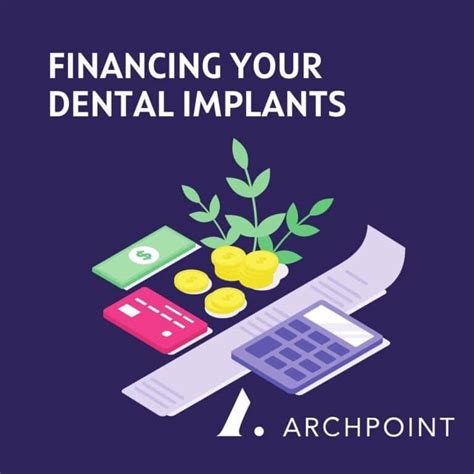The Complete Guide to Financing Dental Implants
Dental implants are a life-changing solution for missing teeth, offering superior stability, function, and aesthetics compared to other restorative options. However, the cost can be a significant barrier for many people. This guide will explore various financing options available to help you achieve your dream smile without breaking the bank.
Understanding the Cost of Dental Implants
Before delving into financing, it's crucial to understand the factors influencing the overall cost of dental implants. Prices vary depending on several factors:
- Number of implants needed: Replacing a single tooth is significantly cheaper than a full-arch restoration.
- Complexity of the procedure: Bone grafting, sinus lifts, or other preparatory procedures can add to the expense.
- Location and experience of the dentist: Costs can vary considerably based on geographic location and the dentist's expertise and reputation.
- Materials used: The type of implant and abutment material used can affect the final price.
Getting a detailed breakdown of costs from your chosen dentist is essential. This transparent communication will allow you to plan your financing accordingly.
Exploring Financing Options for Dental Implants
Fortunately, several financing options are available to make dental implants more accessible:
1. Dental Insurance: Many dental insurance plans offer some coverage for implants, though the extent of coverage varies widely. It's vital to check your policy details and understand what percentage of the costs your insurance will cover. Pre-authorization might be required before the procedure.
2. Payment Plans Offered by Dental Practices: Many dental offices offer in-house payment plans, allowing you to spread the cost over several months or years. These plans usually involve manageable monthly installments with varying interest rates. Inquire about their options and compare them to external financing.
3. Healthcare Credit Cards: Several companies specialize in offering healthcare credit cards designed specifically for financing medical and dental procedures. These cards often provide promotional financing periods with low or zero interest rates for a specified timeframe. However, it's critical to be aware of the interest rates that apply after the promotional period. Carefully review the terms and conditions before signing up.
4. Personal Loans: Personal loans from banks or credit unions can also be used to finance dental implants. These loans typically come with fixed interest rates and repayment terms. You can shop around for the best interest rates and repayment options available.
5. Health Savings Accounts (HSAs) and Flexible Spending Accounts (FSAs): If you have an HSA or FSA, these tax-advantaged accounts can be used to pay for qualified medical expenses, including dental implants, thus reducing your overall out-of-pocket costs.
6. Third-Party Financing Companies: Several companies provide financing specifically for dental procedures. These companies often have more flexible terms and approval processes than traditional banks.
Choosing the Right Financing Option
Selecting the best financing option depends on your individual financial circumstances, credit score, and the overall cost of your treatment. Consider these factors when making your decision:
- Interest rates: Compare the interest rates of different options to minimize the total cost.
- Repayment terms: Choose a repayment plan that fits comfortably within your monthly budget.
- Fees and charges: Be aware of any associated fees or charges.
- Credit score impact: Some financing options may impact your credit score.
Tips for Securing Financing for Dental Implants
- Shop around: Get multiple quotes from different dentists and financing providers to find the best deal.
- Improve your credit score: A higher credit score can improve your chances of approval and secure more favorable interest rates.
- Prepare your financial documents: Gather necessary documentation, such as proof of income and bank statements.
- Read the fine print: Carefully review all contracts and terms and conditions before agreeing to any financing option.
By carefully considering these factors and utilizing the available financing options, you can achieve a healthier, more confident smile without compromising your financial well-being. Remember, securing funding for dental implants is a process that requires careful planning and research. Don't hesitate to discuss your options thoroughly with your dentist and financial advisor to make an informed decision that's right for you.
